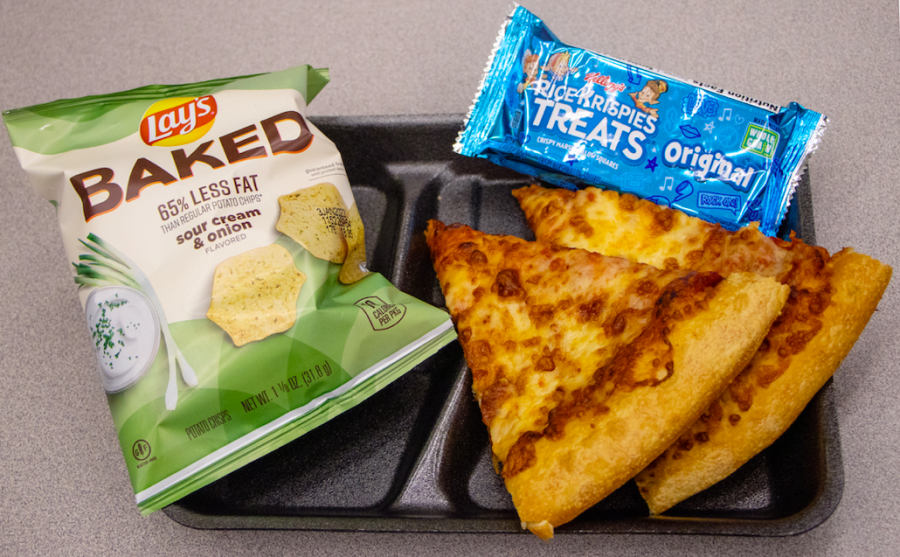The Universal School Meals Program has expired
This year has seen the return of the National School Lunch Program following the decline of the COVID-19 Pandemic, posing a change for numerous Northwest families.
During lunch, some students choose not to purchase a full meal to save money.
November 11, 2022
For a majority of students, lunch is often the only meal they have during school, making it an important source of energy to get them through the day. When COVID-19 first began, it became increasingly hard for many families to continuously fill their children’s lunch accounts. In response to this problem, the United States Department of Agriculture (USDA) implemented the Universal School Meals Program (USMP), which allowed flexibility in school lunch programs so schools could provide students with free meals, even allowing virtual students to pick up meals.
The Universal School Meals Program Act of 2021 was introduced by Senators Bernie Sanders and Kirsten Gillibrand, and Representatives Ilhan Omar and Gwen Moore. The bill was introduced during the pandemic in response to a USDA report that an estimated 12 million students and families were reportedly experiencing food insecurity.
The act ensured that all students had access to free and nutritious breakfasts and lunches. It also increased school meal reimbursement to the recommended rates shown in the USDA’s School Nutrition and Meal Cost Study. Moreover, it decreased the stigma surrounding school meal programs and has been shown to improve both attendance and performance rates in school.
Lauryn Burbach, a junior at Northwest, said the program was helpful to a lot of people in the district.
“Everyone has different situations but if there are people who can’t always guarantee that they are going to have lunch, they could buy it from school without worrying about paying for it,” Burbach said.
Although the number of students who would benefit from free lunches hasn’t decreased greatly, the program has been removed from schools nationwide. As of now, Northwest has reverted back to the National School Lunch Program (NSLP), meaning only students whose families’ income levels are below a certain amount can receive a free and reduced lunch.
However, many of the eligible students do not participate in the program due to stigma, as well as the abundance of paperwork that families must fill out in order to participate. Burbach said while it appears helpful, the program seems to be set up in an inefficient way.
“It seems very beneficial, and it’s good that they are aware that there are people who do need help,” Burbach said. “But going through the paperwork, and having it go through the people it needs to go through is probably too much for a lot of people.”
Even with the NSLP, many low-income students requiring free meals are deemed ineligible. Many families have come to rely on the free lunch program over the course of the pandemic, but now that it is gone, those whose incomes are barely above the indicated level may have to end up choosing between lunch and other needed expenses.
The USMP ended on June 30 of this year, sending many families scrambling to fill out a myriad of paperwork in order to receive aid under the former program. Burbach noted that she did not find out about the removal of free meals until almost two weeks into the school year.
“I realized they weren’t free because one of the lunch ladies told me to put money into my account,” Burbach said. “I was confused, because the lunches were free as far as I knew.”
While in use, the USMP enabled schools and child care facilities to provide healthy meals to everyone, rather than having to process mounds of paperwork in order to grant students aid. Additionally, the improvement seen in schools’ attendance and performance rates further support the importance of free meal availability for all students.
According to the polling firm Data for Progress, about 44 percent of Americans strongly support permanently extending the Universal School Meals Program. Burbach agreed with this, saying the program had an impact on many individuals in Blue Valley.
“[The program] could be helpful. I think it would benefit a lot of people,” Burbach said.










